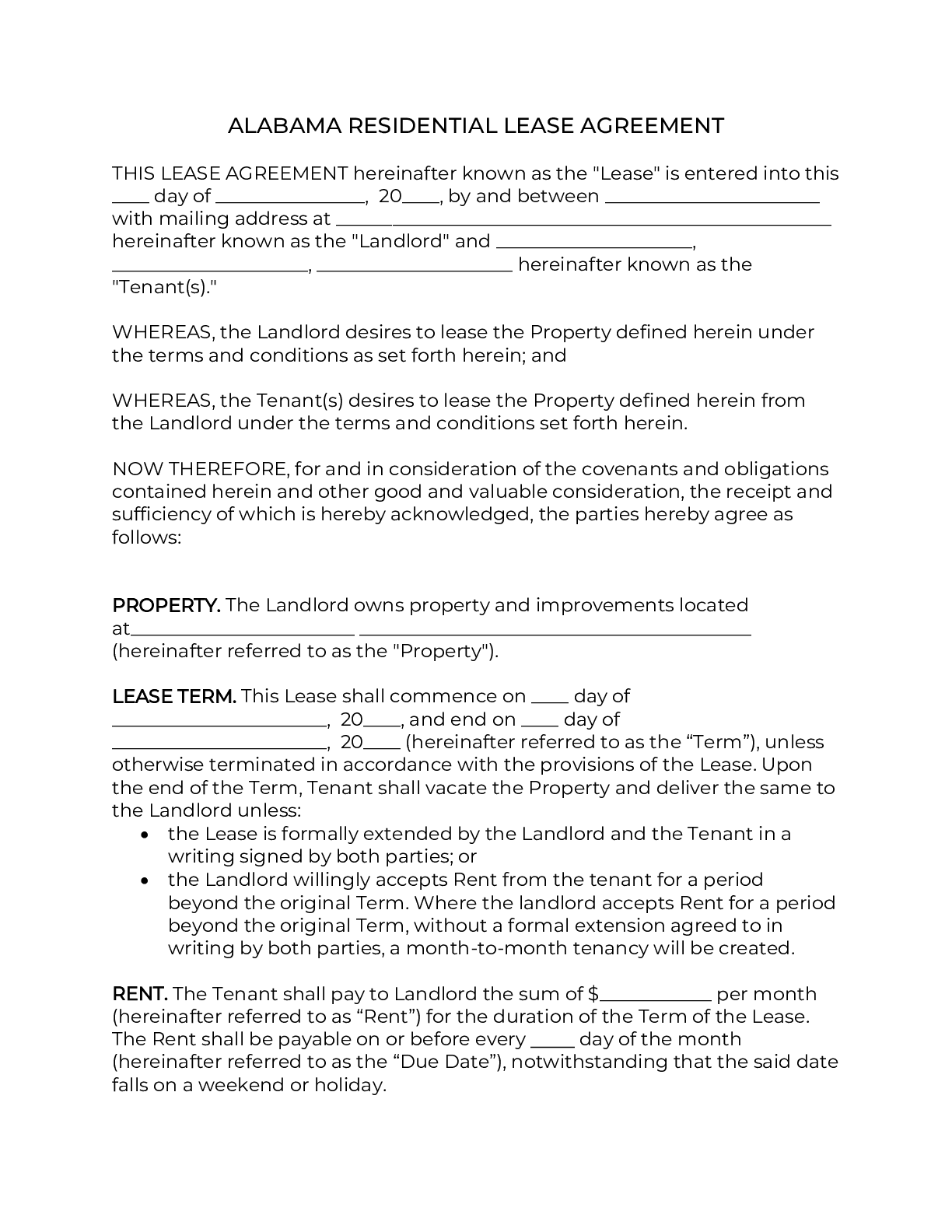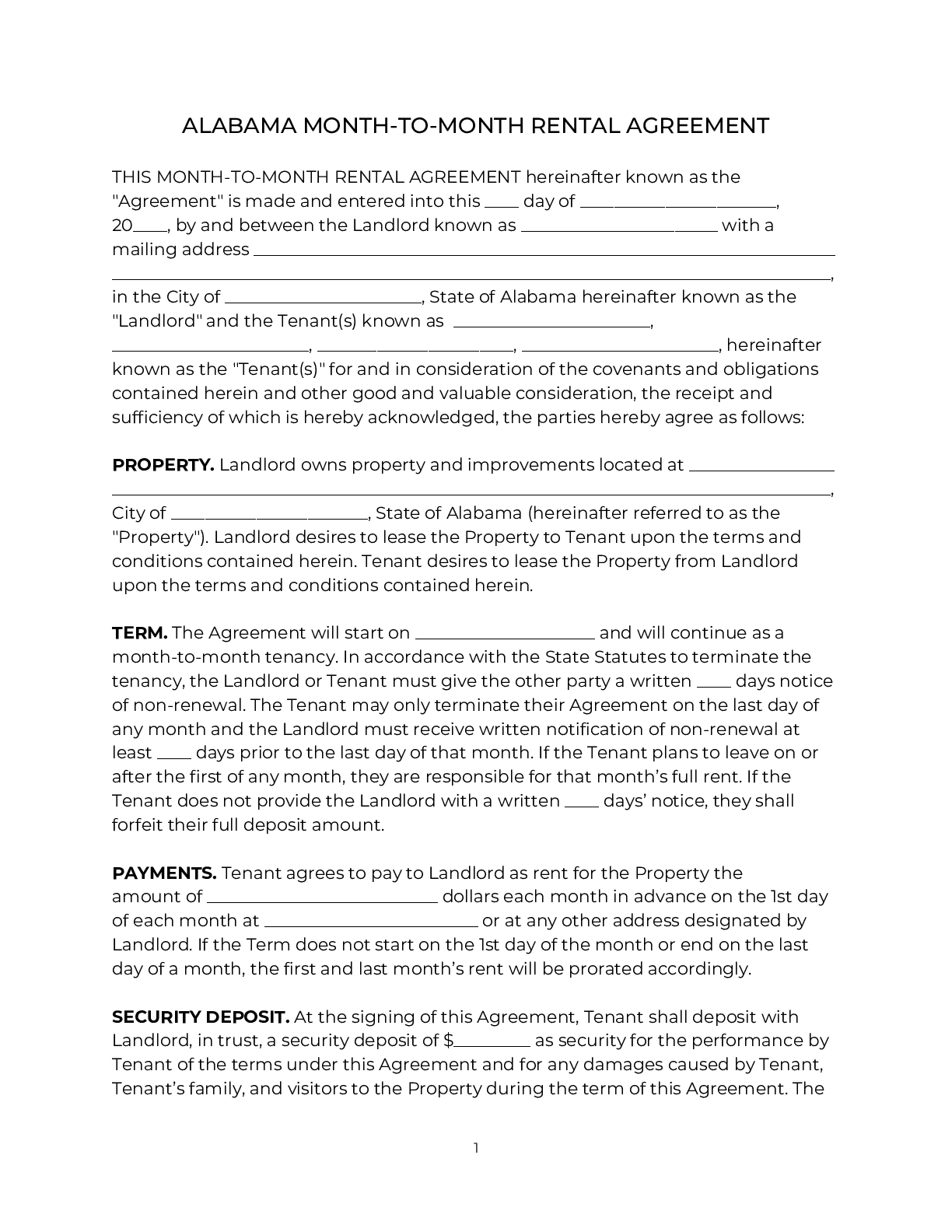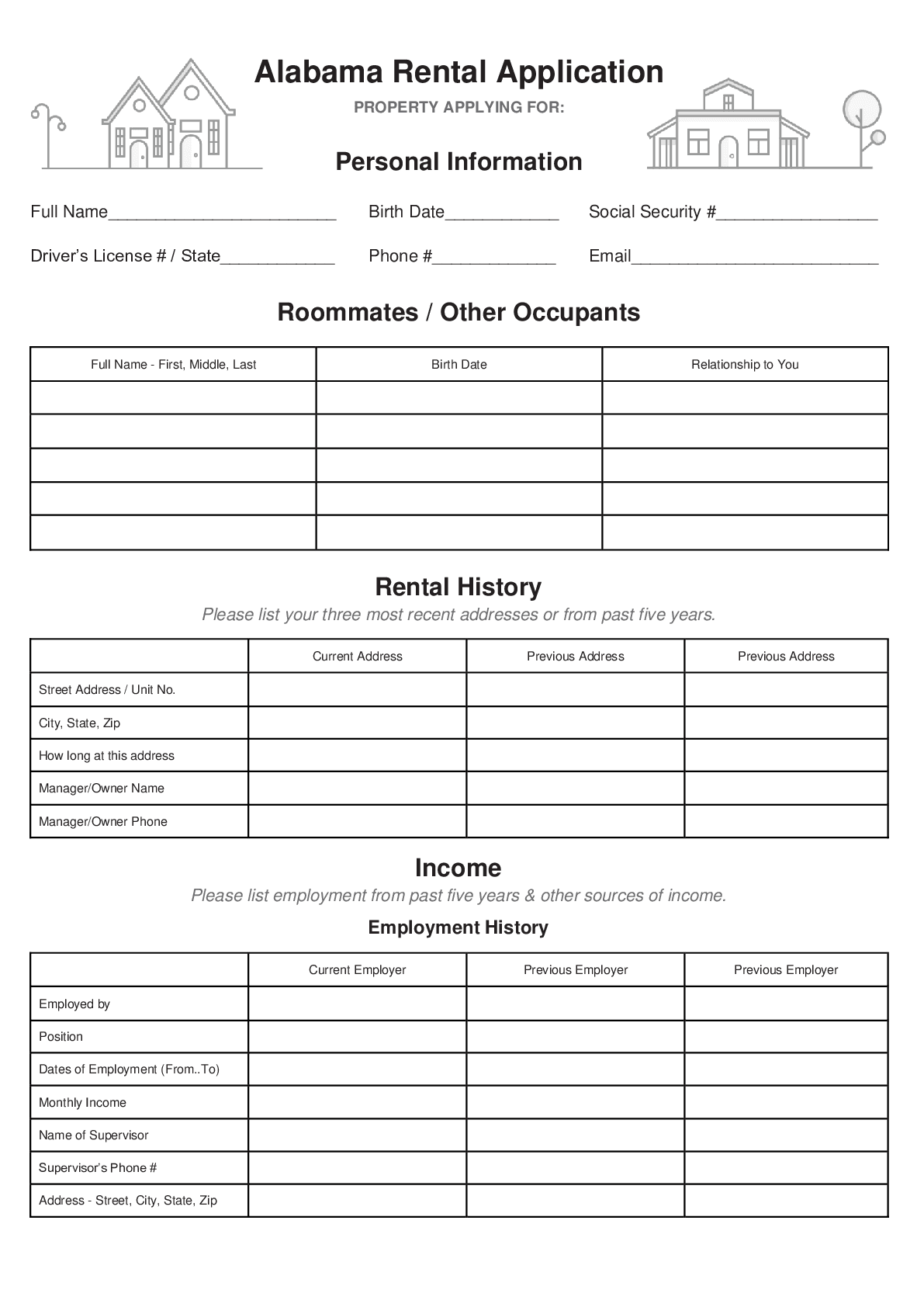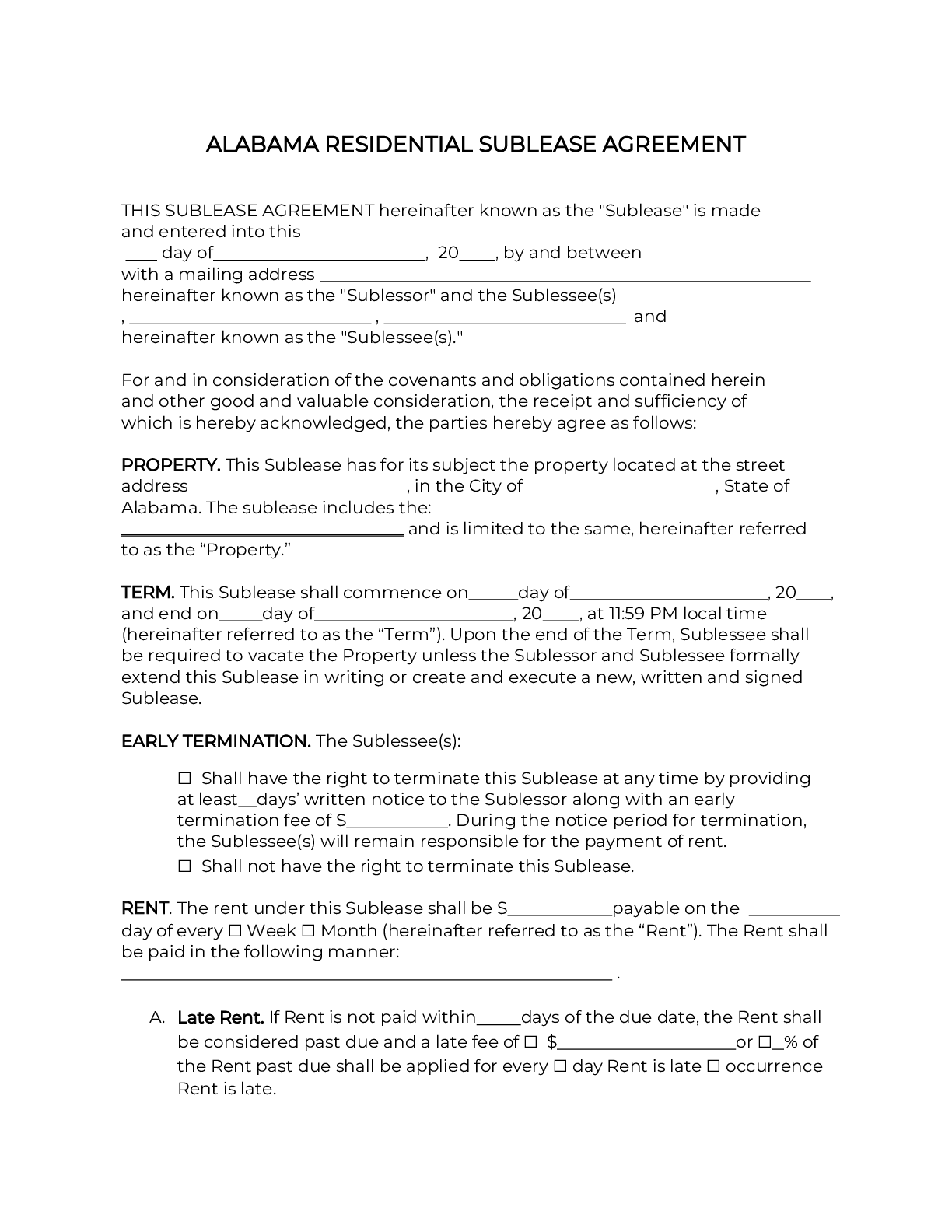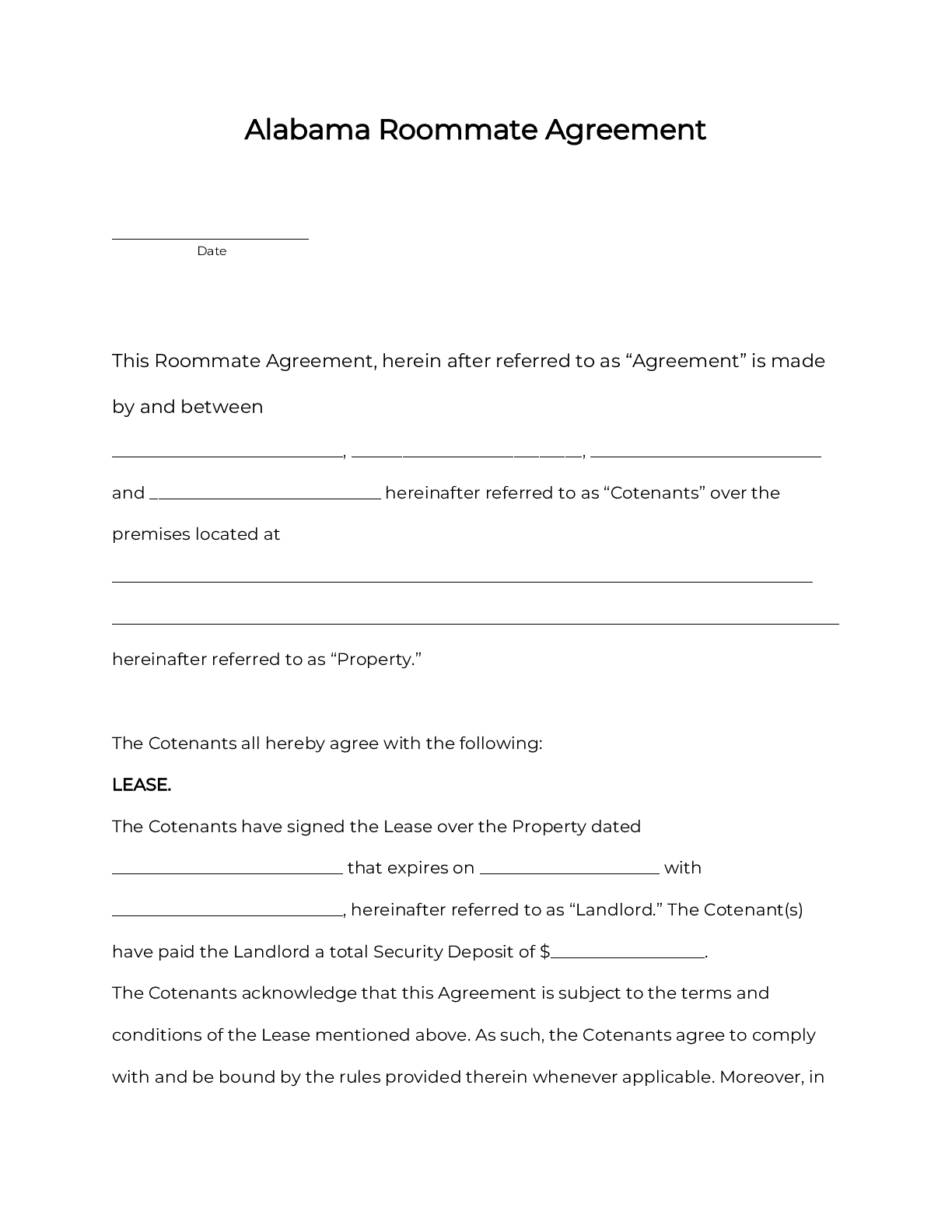An Alabama rental agreement is a legal contract between a landlord overseeing a rental property and a tenant using the property. Alabama landlord-tenant law governs and regulates these agreements.
Alabama Rental Agreement Types
An Alabama roommate agreement is a legal contract between two or more people (“co-tenants”) who share a rental property according to rules they set, including for things like splitting the rent. This agreement binds the co-tenants living together, and doesn’t include the landlord.
Alabama Required Residential Lease Disclosures
- Landlord’s Name and Address (required for all leases) – Landlords must give the tenant their name and address, or that of their authorized agent. This allows required communication (for example, about repairs) to happen in a smooth way.
- Lead-Based Paint Disclosures (required for some leases) – Landlords must provide an EPA-approved disclosure and informational pamphlet to tenants renting any property built before 1978.
To learn more about required disclosures in Alabama, click here.
Alabama Landlord Tenant Laws
- Warranty of Habitability – Alabama landlords can only rent out habitable property. This means providing certain basic health and safety features like heat, plumbing, and electricity. Landlords must repair any issues within 14 days after proper notice from the tenant. Failure to repair lets a tenant sue the landlord or terminate the lease. Tenants aren’t allowed to repair and deduct, or withhold rent.
- Eviction Process – Alabama landlords may evict for rent nonpayment, lease violations, code violations, providing false information on a rental agreement/application, or engaging in an illegal act. In most cases, a landlord must only provide seven days of advance notice to quit before filing eviction.
- Security Deposits – Alabama caps security deposits at a maximum of one month’s rent. Upon lease termination, a landlord must return any unused portion of a tenant’s security deposit within 60 days.
- Lease Termination – Alabama lets tenants terminate a month-to-month lease with 30 days of advance notice. Terminating a fixed-term lease early requires (in most cases) active military duty, landlord harassment, uninhabitable property, or domestic abuse.
- Rent Increases and Fees – Alabama has no limit on the amount or frequency of a rent increase. The state likewise has no limit on fees, except for returned check fees, which are capped at $30 per instance.
- Landlord Entry – Alabama landlords may enter rental property for reasonable business purposes like maintenance, inspections, and property showings. Before entering, they must provide 2 days of advance notice, except for emergencies.
- Settling Legal Disputes – Alabama lets small claims courts hear landlord-tenant disputes, as long as the amount in controversy is under $6,000. For most landlord-tenant issues, the statute of limitations in Alabama is six years.
To learn more about landlord-tenant laws in Alabama, click here.
Sources
- 1 Ala. Code § 8-8-15(a)
-
Any lender of money, extender of other credit, or merchant making a sale of merchandise, goods, or services, or the assignee of the lender, extender of credit, or merchant who receives a check, draft, negotiable order of withdrawal, or like instrument drawn on a bank or other depository institution given by any person in full or partial repayment of a loan, other extension of credit, or a sale of merchandise, goods, or services may, if the instrument is not paid or is dishonored by the institution, charge and collect, through regular billing procedure or otherwise, from the borrower, person to whom the credit was extended, or from whom the instrument was received, a bad check charge of not more than the greater of either twenty-five dollars ($25) or an amount equal to the actual charge by the depository institution for the return of unpaid or dishonored instruments.
(b) Commencing January 1, 1999, the bad check charge in subsection (a) shall increase by one dollar ($1) per year through January 1, 2003, at which time the maximum bad check charge shall be thirty dollars ($30).
Charges imposed in connection with the dishonor of a negotiable instrument shall not be deemed interest finance or other charge made as an incident to or as a condition to the grant of the loan or other extension of credit and shall not be included in determining the limit on charges which may be made in connection with the loan or extension of credit as provided in this section or in any other law of this state.
Source Link




